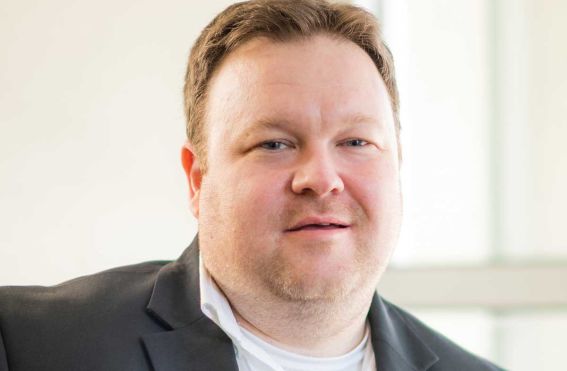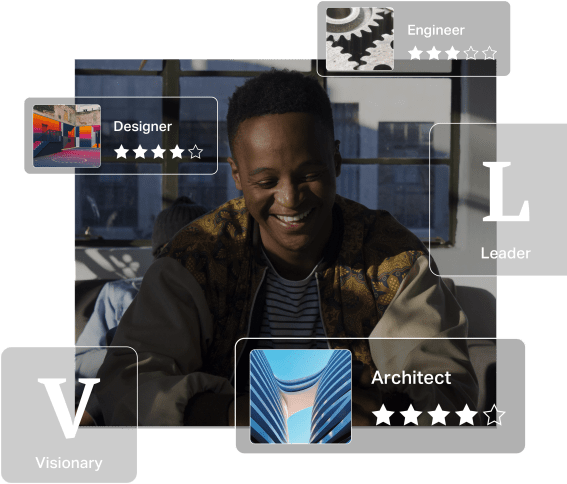The CareerExplorer Discord Community had the opportunity to speak to Alexi in a live, fireside Q&A.
Alexi currently works as a data scientist at a startup company that makes simulation-based cognitive assessments. He transitioned from being an animal behavior researcher to a data scientist just over two years ago. Not uncommon for data scientists, Alexi’s current role is largely unrelated to his formal training.
The transcript below has been modified and abridged from the original conversation.
Career History
You started your education by getting a BSc in Biology. Are there any careers or job opportunities for those who want to stop their education at that level?
Unfortunately, the options for work with a BSc in Biology are slim from what I have seen. There are exceptions to this, but most people I know that completed an undergraduate degree have gone on to either switch directions or have carried on with further education.
Would you recommend a career in animal welfare for those who want to make a difference in animal’s lives? What types of animals did you work with?
I worked specifically with dairy cows, looking at the link between behavior and disease. Animal welfare is an up-and-coming career path and I think there is a lot of room in both academia and the industry for more qualified people. It is important and interesting work, and I’m still very passionate about it.
One of the easiest ways to be involved with animal welfare is to vote with your dollars. For example, if you purchase animal products, you can often choose one that comes from a farm that has more animal welfare friendly practices.
Switching Career Paths
How hard was it to make the decision to switch from being an animal behavior researcher to a data scientist? Was it a decision based on dissatisfaction with the field of animal science?
The decision to switch career paths happened during a six month break I took after completing my graduate degree. When I first completed my masters, I intended to continue my studies with a PhD in a similar vein. However, with the space that taking a six month break afforded, I was able to reflect on how I was feeling about my current career choice.
I don’t want my switching to data science to suggest that it may be a poor career. My choice to switch was less to do with dissatisfaction than with a desire to try something that I had always wanted to try. I had taken programming classes in high school and always wanted to pursue that further, which is why I decided to give data science a try.
What similarities are there between animal behavior research and data science that have made your transition from one career to another easier?
In my current role as a data scientist, some of the work that I do involves creating scores to quantitatively estimate a user’s performance in our simulation-based cognitive assessments. This is remarkably related to animal behavior research, actually.
When studying animal behavior, you cannot ask the animal what it is thinking as you might with a human, so it’s common to observe the animal’s behavior and make inferences about what those behaviors might indicate. As an example, you might provide three lying surfaces to an animal and watch which it chooses to lie on, and you might infer that the surface they spend longest on is their preferred substrate.
Similarly, we cannot ask our users what they are thinking while completing the task, and so often use their behavior (i.e., how they interact with the task) to make inferences about what cognitive processes they could be using. This is a very specific example, but there are many other skills that I developed in my first career that I was able to generalize and bring with me to data science.
How common is it for students to switch their paths midway through their schooling? Did you see a lot of that happening within your academic circle?
It’s very common. Almost all of my close friends have switched their paths during the course of their post-secondary education at least once. I think this is quite common while in school, but becomes much less common after school ends or at later stages of schooling, like during a PhD.
Do you have any advice for someone who is unhappy with the major they’ve chosen and who is afraid to switch their direction?
I say make the switch if you are able to manage it! Many people feel that because they’ve invested so much time in a specific path, they would be foolish to go in a different direction. But I am at least one data point that suggests that making a change can be worth it. I have found the switch to be thoroughly challenging, but also enjoyable.
The Ins and Outs of Data Science
What type of person would do well in data science?
There are two key traits that I think are good to have as a data scientist.
Someone who:
(a) likes solving tough problems
(b) has a high attention to detail
On a day-to-day basis, you are often faced with challenging problems and spend quite a lot of time thinking about different ways to solve them. This part doesn’t involve any programming, although knowing what tools are available to you help you frame the problem.
Implementing your conceived solutions requires remarkable attention to detail, otherwise you may spend the rest of your week catching bugs in your code!
Is it easy to find work and get hired as a data scientist? Is it a growing field?
Data science has seen explosive growth in recent history. There have been so many bootcamps, accelerated master’s programs, and other certifications that have become available to fill that demand.
As for how easy it is to be hired as a data scientist, I honestly don’t know right now. That said, those in my relatively small circle of friends in data science seemed to have an easier time finding related work than many of my friends in non-tech related fields.
Is it true that data scientists spend most of their time cleaning data? How much time do you spend building models and deriving insights?
In general, cleaning data takes much longer than analyzing or otherwise modeling it (with some exceptions). However, how much time you spend doing that as a data scientist depends on your company. Some companies have strong data infrastructure, and clean data may get piped directly to you. But in most cases, there are many steps between data collection and the final result.
Personally, I spend less and less time cleaning data as I develop tools that automate the wrangling and scrubbing process for the specific types of data that I encounter. As an example, today I built a utility that extracts the data that I need from raw (dirty) data, so that I don’t need to spend as long cleaning it in the future.
Is data science work social? Are the projects you work on collaborative, or are you mostly working alone?
I think many people have the image of a data scientist, or programmer, holed up in a basement, very much in isolation. While those lone wolf programmers and data scientists surely exist, all of my experiences have been quite the opposite.
There is a lot of collaboration between your fellow data scientists when solving problems and, very importantly, communicating your results to other team members or groups is a big part of the job as well.
I didn’t expect communication to be such a challenging part of data science, but it definitely is. Trying to clearly convey your findings or process can be quite difficult, especially to a lay audience. I want to be clear that this has nothing to do with people not being intelligent and not understanding data science, but rather that data science is often wrapped in a thick veil of jargon and abstract concepts that are hard to say in plain English.
How much math and statistics skill is involved in data science, as opposed to programming?
I’d say that a data scientist’s role tends to be a bit more math and statistics heavy than a general programming role, since you directly work with data and modeling a lot of the time. That said, there are many other roles in programming that involve a lot of math and statistics, maybe even more than data science.
As an example from my own work, I’ve recently been working on a lot of software development that has involved little statistics, but a fair amount of math and especially algorithmic knowledge.
Learning Data Science Without a Degree
Can you become a data scientist without getting a bachelor’s or master’s degree? Is it something you can learn by taking online courses or certifications?
While I think that having a formal education helps get your foot in the door, or past the first cut of resume reviews, it is not necessary in order to be a data scientist or other form of technology worker.
I do think that you can get a sufficient education by self-learning data science. There are a ton of YouTube videos, articles, and online courses for data science available, and they are mostly very good quality.
As an example, Amazon has their own certification program for the use of their web services (AWS) that has no prerequisites. I think having something like this on your resume would count for a lot when job hunting.
Did you go back to school for data science or self-teach?
I am self-taught, but the truth is a little more complicated than that. I started my internship as a data scientist in the fall of 2018 and, alongside my own self-guided learning, I also started a few online courses (though most not to completion, I’ll admit).
These were free online courses that I found on the internet, typically made up of online lectures that I would listen to. For my own self-learning, there was a lot of googling and reading of relevant textbooks, or relevant parts therein.
What are your favorite data science resources for learning?
I have found textbooks to be my favorite resource for covering a lot of ground fast. For practical learning, I’ve been big into the O’Reilly textbooks. They are also extremely affordable.
The Flexibility of Data Science
Do you see yourself staying in data science indefinitely, or do you have plans to move to a new industry at some point?
One of the benefits of data science is that it can be applied to almost any field. Right now I work with cognitive assessments, but I could just as easily move back to animal welfare and use the data science toolkit on problems in the animal welfare domain.
I’m happy where I am right now, but I can definitely see myself either moving back to animal welfare, or into another field where my passion lies in the future. However, I do think that data science will always be with me no matter where I go!
Find weekly Live Q&A’s in the CareerExplorer Discord Community.


